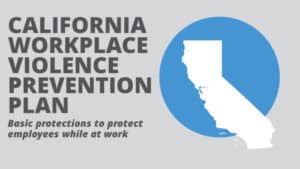Written By Christopher Dolan and Mari Bandoma Callado
My partner and I are waiting for the arrival of our baby at the end of June. We are adopting her and cannot wait to become parents. I will be asking for some time off from work to bond with our baby and would like to know more about my rights as an adoptive father. How much time off can I take? Am I entitled to paid leave? Do I get to keep my health benefits? In the three years I have worked for my company, I noticed that not a lot of the men I work with take time off to bond with their newborn. I am worried about being retaliated against for requesting paternity leave I work for a small tech company with 15 employees in Oakland, California. Thank you and I hope you have a great Father’s Day! – James
Thank you for your question, James. Congratulations and Happy Father’s Day to you too. It is really unfortunate there is still a stigma against taking paternity leave.
Time Off to Bond with Newborn, Newly Adopted or Foster Child
The California Family Rights Act (CFRA) requires California employers with 5 or more employees nationwide to provide employees who worked for their employer at least 1,250 hours in one year just prior to taking leave up to 12 weeks of unpaid, job-protected leave to bond with a newborn, newly adopted, or foster child within the first year of birth or placement in the home. Employees do not have to take this leave all at once as time off from work can be taken intermittently.
Employees are required to provide “reasonable notice” of your intent to take baby bonding or family leave. How much notice is required depends but it would be prudent to try to notify your employer at least 30 days in advance of your plans to take time off. We recommend providing notice in writing and including the dates you plan to begin your leave, the anticipated duration of that leave, and a brief explanation of why you are taking that leave (e.g. to bond with adopted baby).
Benefits and Payment During Paternity Leave
If you have health benefits through your employer, they will continue while on CFRA leave.
Note: you may have to pay for your portion of your premiums.
Unfortunately, your employer is not required pay you while you are on leave (unless your employer pays employees on CFRA leave), but here are a couple of ways you can receive payment during paternity leave:
- State benefits: California offers Paid Family Leave (PFL) which provides up to 60% or 70% of weekly wages, depending on income for a maximum of 8 weeks to bond with your newborn, adopted child or foster child within the first year. To be eligible for this partial wage replacement, you must have paid into State Disability Insurance during the base period. This is often noted as CASDI on most paystubs. To learn more about eligibility and/or to apply for paid family leave, go to edd.ca.gov.
- Paid Sick Leave: California’s paid sick time law gives employees sick time that can be used to recover from physical/mental illness or injury; to seek medical diagnosis, treatment, or preventative care as well as to take care for a family member who is ill or needs medical diagnosis, treatment, or preventative care; or to address needs that may arise if the worker is a victim of domestic violence, a sexual offense, or stalking. Therefore, if your baby gets sick or you want to take your child to medical appointments, you may also use your paid sick days. Your employer may not require you to use sick leave; however, you and your employer can mutually agree that you may use sick leave.
Note: some California cities have their own sick time laws which may provide additional rights. - Accrued Paid Time Off: Your employer may require you to use vacation time unless you are receiving PFL from EDD to bond with a new child.
Retaliation/Returning to Work
California laws protect employees from retaliation. It is unlawful for an employer to violate an employee’s family leave rights and retaliate against an employee who takes time off to bond with their baby. Retaliation occurs when an employer takes an “adverse action” against an employee because s/he has exercised a “protected legal right” such as requesting parental leave. An adverse action is any act by an employer that negatively and significantly affects the terms and conditions of one’s employment such as termination, demotion, suspension, reduction in pay or hours, and any other action that would discourage a reasonable person from pursuing their rights.
When you return to work after parental leave, your employer must return you to the same or comparable position they had prior to the leave. If you notice any changes to your job title, duties, or a reduction of pay of hours, or if you hear any offensive comments about taking time off, consult with an attorney to help protect your rights.










